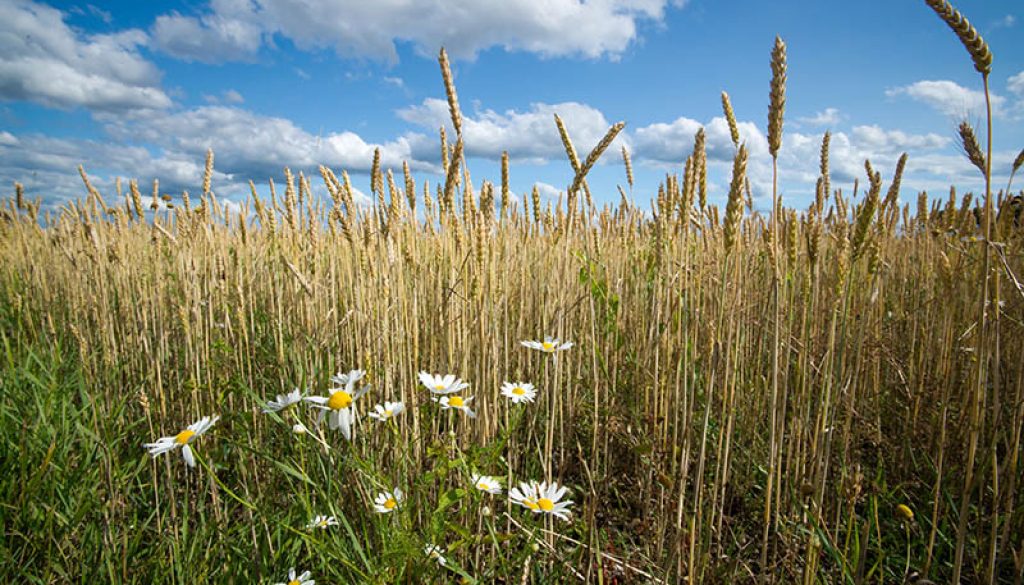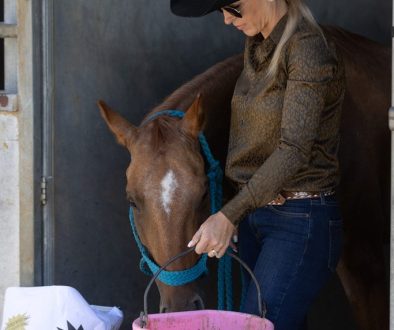When considering how to balance a horse’s diet to their nutrient requirements, we must first become familiar with the building blocks of a ration.
First and foremost,
- Water is the most essential nutrient. The average horse drinks 5-10 gallons per day; horses can need upwards of 15+ gallons per day depending on activity level and environment (humidity).
On to the diet components…
- Energy – an energy-deficient state can impair the absorption and utilization of other nutrients. Excess energy can be detrimental, especially during growth phases. Horses that are lethargic, or have slow recovery times after rides or competitions, may be lacking the correct amount of energy, or fuel, in their diet to achieve their peak performance.
- Protein breaks down into smaller peptides and amino acids. Amino acids are major factors for healthy muscle development and maintenance. They are also involved with enzymes and hormones.
- Carbohydrates are the primary source of fuel for horses, especially during anaerobic activity.
- Starch – easily digested and broken down into Glucose
- Cellulose, Hemicellulose – insoluble fiber fermented in the hindgut to produce VFAs
- Fats are another source of energy. Fats are a secondary fuel source during aerobic activity.
- Vitamins are vital in the regulation of body functions. All vitamins but A and E are synthesized by the horse or their microbiome.
- Fat Soluble (can be stored in the body)
- Vitamin A – important for vision, reproduction, bone & muscle growth, bone remodeling, & maintenance of healthy epithelial tissue
- Vitamin D – the sunlight vitamin, important for mineral absorption
- Vitamin E – important for immune response, antioxidant role
- Vitamin K – required for activating clotting factors and activating other proteins
- Water Soluble (not stored in the body)
- B Vitamins – can be synthesized in the hindgut; plays a role in lipid metabolism and maintenance of tissues.
- Vitamin B Complex refers to the 8 B vitamins: B1, B2, B3, B5, B6, B7, B9, B12
- B Vitamins – can be synthesized in the hindgut; plays a role in lipid metabolism and maintenance of tissues.
- Fat Soluble (can be stored in the body)
- Commonly Mentioned B Vitamins
- B1- Thiamine (listed requirement in NRC)
- B2 – Riboflavin (listed requirement in NRC)
- B7 – Biotin, commonly supplemented
- Vitamin C – Antioxidant that plays a role in immune response, connective tissue, and some hormones. Horses can synthesize their own Vitamin C.
- Minerals are absorbed in the small intestine. They are needed for structural aspects of bone, connective tissues, hoof wall integrity, and other metabolic processes. Keeping balance is critical; under or over-supplementation can have adverse effects.
-
- Macro Minerals – needed in larger quantities in the diet
- Calcium – electrolyte; makes up bone, important in skeletal contractions, thermoregulation, regulating enzyme activity, and more.
- Magnesium – electrolyte; is a component in bone, has a role in nerve cell transmission, enzyme reactions, muscle contraction and relaxation.
- Phosphorus – makes up bone, used in energy metabolism and other cellular functions.
- Potassium – electrolyte; acid-base balance, muscle contraction, nerve impulses, and more.
- Sodium – electrolyte; acid-base balance, muscle contraction, nerve impulses, and more.
- Chloride – electrolyte; normally paired with Sodium as NaCl, or salt.
- Sulfur – component of amino acids, vitamins, insulin, chondroitin sulfate, and plays a role in reinforcing collagen bonds.
- Macro Minerals – needed in larger quantities in the diet
-
- Trace Minerals – needed in small amounts in the diet, but still very important.
- Cobalt – enhances fiber digestion and is a component of B12. Considered a controlled medication in FEI but the mineral occurs naturally in feedstuffs.
- Supplemental Article from Comparative Exercise Physiology: Evaluation of Cobalt as a Performance Enhancing Drug in
- Copper – has a role in red blood cell synthesis, immune response, reproduction, and melanogenesis
- Iodine – has a role in hormone synthesis, muscle sensitivity
- Iron – immune response, hemoglobin synthesis, and oxygen-carrying capacity of the blood
- Manganese – plays a role in reproduction and reproductive hormones, immune response, metabolism of fuel sources
- Selenium – crucial in immune response, neurological wellness, reproduction, and works with Vitamin E.
- Zinc – involved in energy and protein metabolism, immune response, bone & joint integrity, (normal) functioning of nerves, reproduction, and works with Vitamin A.
- Chromium – has a role in energy metabolism and immune response.
- Cobalt – enhances fiber digestion and is a component of B12. Considered a controlled medication in FEI but the mineral occurs naturally in feedstuffs.
- Trace Minerals – needed in small amounts in the diet, but still very important.
Elk Grove Milling, Inc. offers simple solutions to balance your horse’s diet. With their brands of Stable Mix or Stable MAX, Elk Grove Milling, Inc. has a feed to meet your needs. Not only do their brands cover the basic nutrient requirements, but they also offer so much more. The Stable Mix feeds are Zinpro Verified https://www.zinpro.com/species/equine/, utilize technologies from Kemin Equine, and are packed full of Alltech Solutions. The Stable MAX feeds are new on the market and are powered by LIFEFORCE Formula from Alltech. The LIFEFORCE Formula is a premium approach, backed by science, to enhance health and performance. Reach out today for a nutrition consultation to find your perfect feed match: https://www.elkgrovemilling.com/Nutrition-Library




